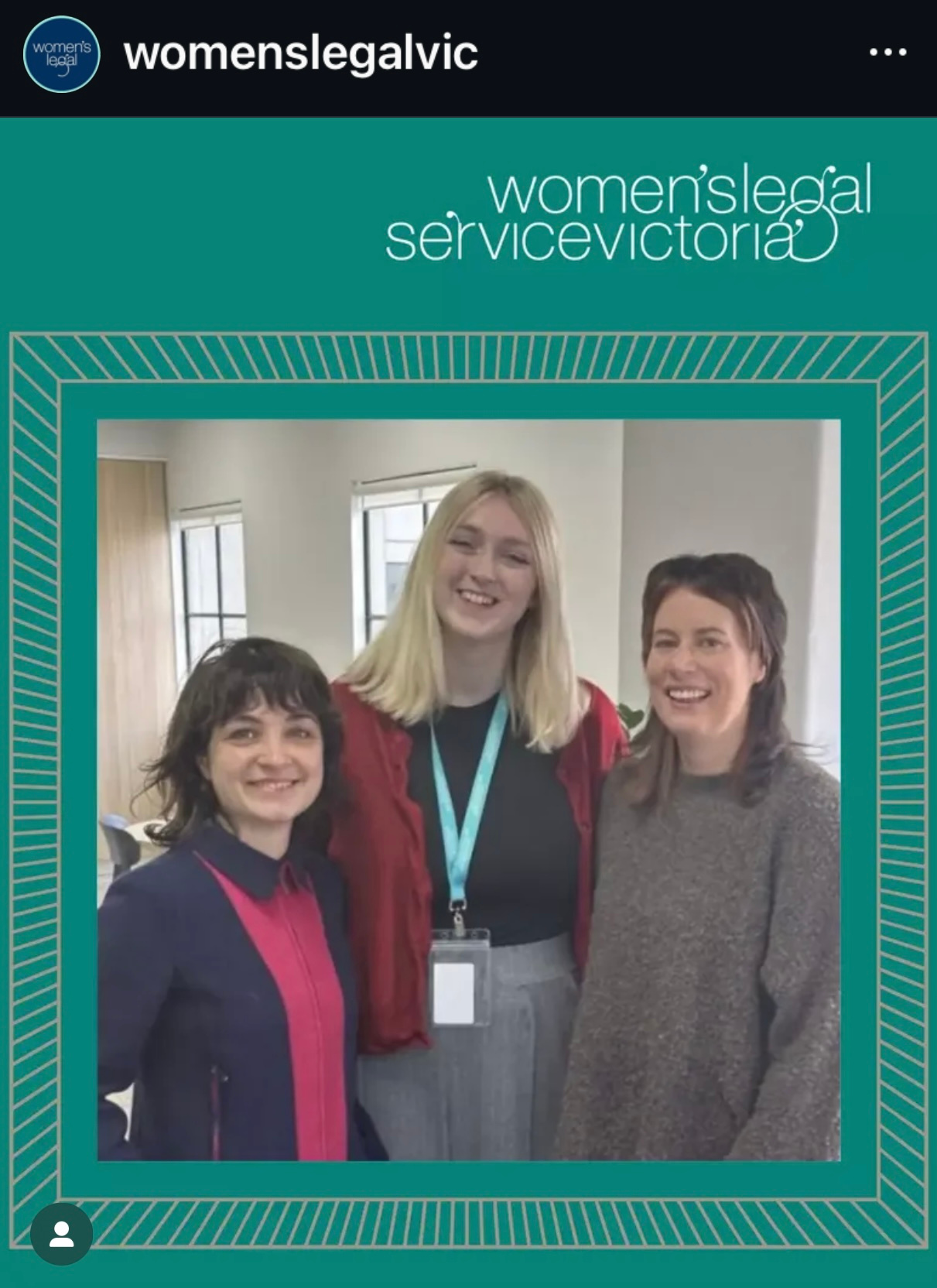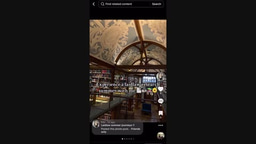Increasing underrepresented women and non-binary people's access to justice through Women’s Legal Service Victoria

Increasing underrepresented women and non-binary people's access to justice through Women’s Legal Service Victoria
I worked with Women’s Legal Service Victoria, a community legal centre, and their CLC consortium the Working Women’s Centre Victoria for 6 weeks. My role was to develop a communications strategy to increase vulnerable young people’s access to justice with relation to their workplace legal problems- especially sexual harassment, wage exploitation, and discrimination. This project culminated in a 50-page communications and research report, and an accompanying training presentation to internal stakeholders.
I set three main objectives for the strategy- to drive more engagement and traffic to online WWCVic services, including the website, Facebook, LinkedIn, and the development of an Instagram profile; increase number of university-aged women and non-binary people who access WWCVic services; and Increase number of university-aged women and non-binary people with greater awareness of their employment rights and legal remedies. My recommendations are within four main categories- digital communications, a physical advertising campaign, university partnerships and outreach, and the development of a virtual work experience.
The main stakeholders are young women and non-binary people (aged 18-24). However, within this group, certain discriminatory factors intersect and create additive harm and barriers to accessing young people. This is because Aboriginal and Torres Strait Islander and LGBTIQ+ young people were two times more likely to experience employment problems than their older cohort counterparts, young people were more likely to experience mental health problems and/or distress and young people were two times more likely to identify as LGBTIQ+ than the older cohort. Other stakeholders included lawyers, policy workers and social workers within the CLC sector, as I presented the strategy to Women’s Legal Service Victoria, South-East Monash Legal Service, WEstJustice, and Northern Community Legal Centre. These CLCs work closely with relevant government ministers as well as grassroots community actors.
During my internship, I also attended a workshop policy launch by the Federation of Community Legal Centres. This training day was insightful, and hearing Antoinette Baybrook AM, Kuku Yalanji woman and CEO of Djirra, advocate for Aboriginal women’s expertise stood out to me. I was able to better understand the current legal environment in Victoria and why the roadmap for change and action for justice from 2025-2030 is vital. One policy strategy I worked closely with was to prohibit Non-Disclosure Agreements (NDAs) in sexual harassment cases unless requested by the complainant. The WWCVic is leading this campaign, entering a submission to the review undertaken by the Victorian Ministerial Taskforce on Workplace Sexual Harassment by making 33 recommendations. My communications strategy recommends targeted campaigns to gain casework with respect to young women and non-binary people on this issue.
I was also invited to attend the policy, advocacy and communications training day, where we evaluated the future priorities of Womens’ Legal through creating six vision statements related to family violence, systems abuse, economic recovery and other related practice areas. I then undertook research to create an information brief on whether to include the term ‘victim-survivor’ or ‘women and non-binary people who have experienced family violence’ in headline vision statements to ensure consistent, accurate and trauma-informed language use.
It was a very exciting time to be in Victoria due to the First Peoples’ Assembly of Victoria negotiating the first Statewide Treaty with the Victorian Government. This will enable Aboriginal and Torres Strait Islander people freedom and power to develop culturally-safe practical solutions to widespread structural and institutional discrimination. I have learned through working on cases, research and attending First Nations’ panel sessions that misidentification, unlawful deaths in custody and child removal by the state disproportionately impacts Aboriginal and Torres Strait Islander communities. I admire the ‘acknowledgement of country’ undertaken by Australian institutions, acknowledging that sovereignty was never ceded, and this land was and always will be indigenous language. As a British person and historian knowing that 30% of Britons wished we still had a British Empire, seeing Australia’s acknowledgement of the harms of colonisation is humbling. It reaffirmed what I already knew- Great Britain must confront its history- and realities- of colonisation so the 60% of Britons who view the British Empire as having net positive consequences can reevaluate the disproportional and harmful impacts of colonisation.
I am so grateful that the Laidlaw Scholarship allowed me to participate in volunteering for such an amazing cause, in an environment I would have otherwise not been able to experience. I believe I have developed my leadership skills significantly and know how to be a better global citizen. I have established strategies for ongoing evaluation, and I also plan on introducing an Aboriginal and First Nations’ feminism session in the dismantling white feminism study group I co-run back at University in the UK with the insights I have gained from my experience.




Please sign in
If you are a registered user on Laidlaw Scholars Network, please sign in